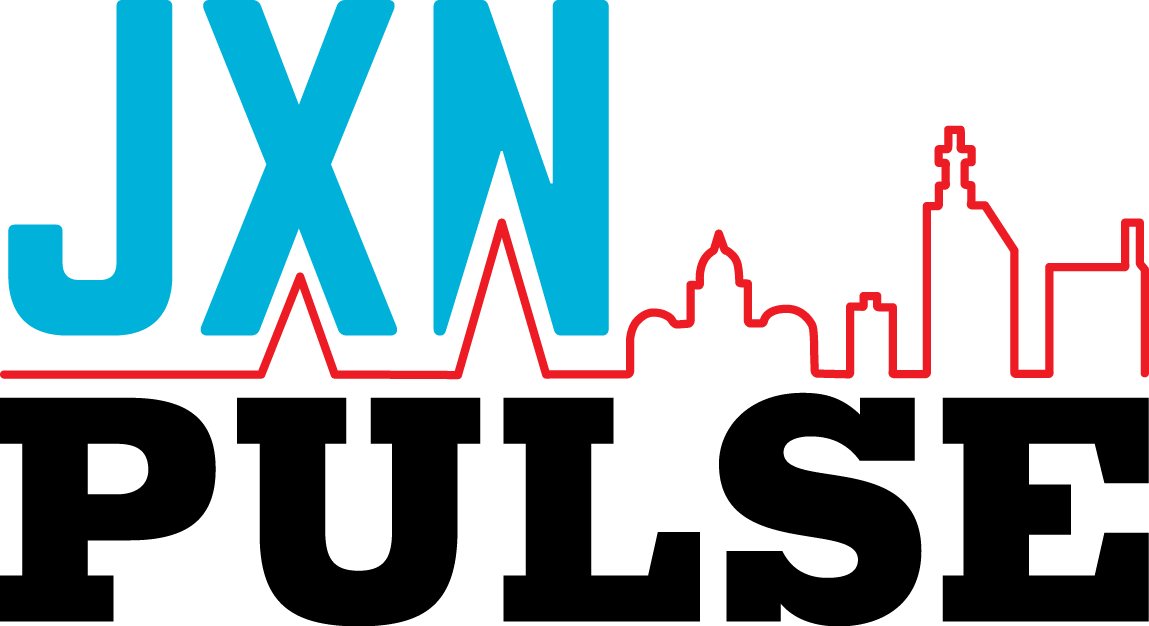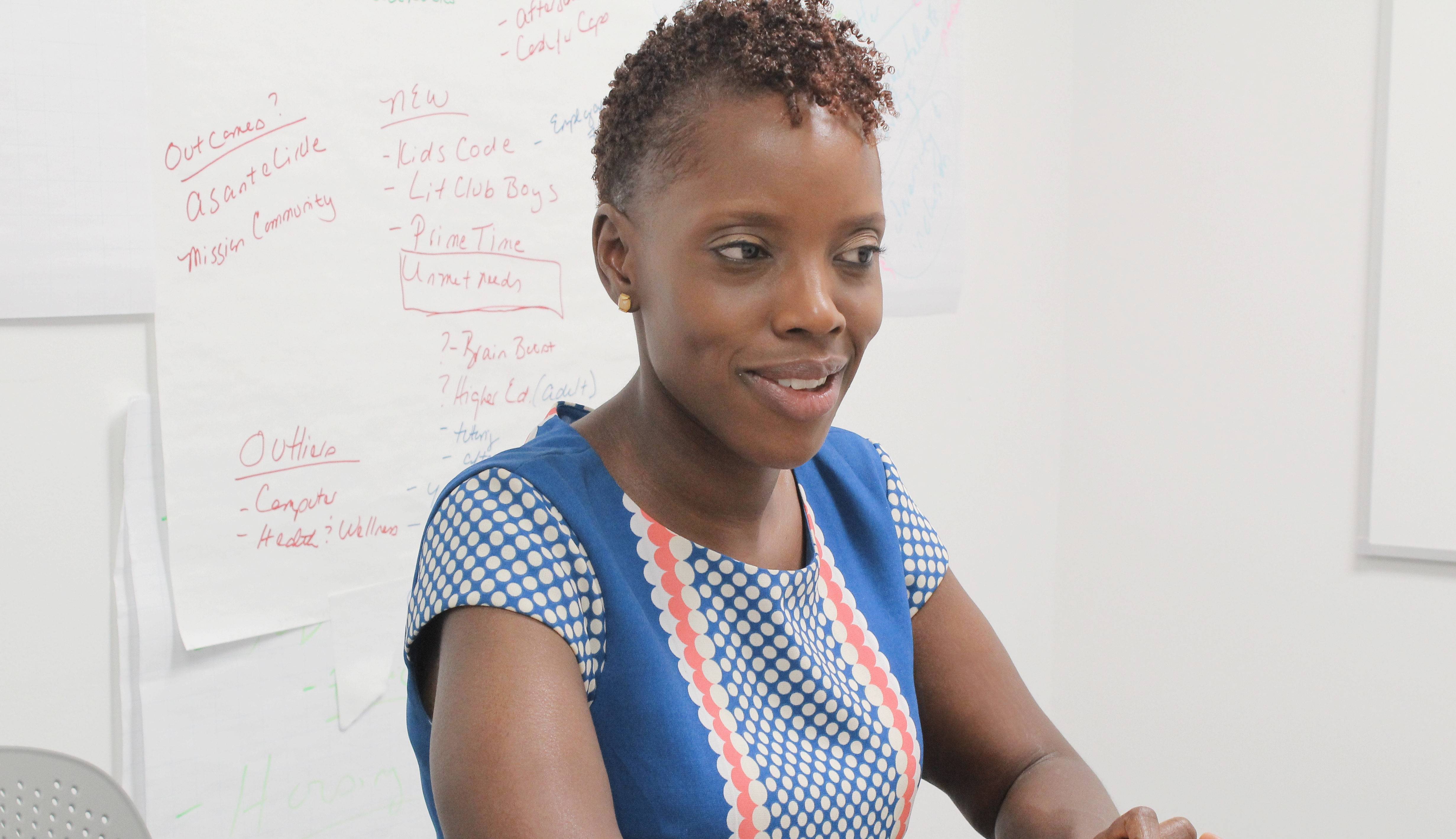Two miles is not a far distance, but it depends on who you ask in Jackson, Miss. To some, it is a world of difference marked by an imaginary line between families from affluent neighborhoods and those in low-income housing. Poverty, education, crime and opportunity are all issues at the forefront when you don’t have accessibility to resources, especially for children from low-income housing. One nonprofit organization in Jackson helps to bridge this opportunity gap by helping communities in need. Photo by Kelsee Ford
by Zipporah Jones
[gdlr_frame type=”border” align=”left” caption=”Photo by Kelsee Ford”][gdlr_image_link type=”image” image_url=”https://www.jxnpulse.com/wp-content/uploads/2016/08/Zipporah_Jones-e1470437063232-200×300.jpg” link_url=”https://www.jxnpulse.com/wp-content/uploads/2016/08/Zipporah_Jones-e1470437063232.jpg” alt=””][/gdlr_frame]
Imagine a single mother with two children, struggling to make ends meet. This mother is a hard worker who provides for her children and keeps a roof over their heads. She wants to get her degree, but doesn’t have the time, money or resources to get through school. With her working so hard, her children may also need afterschool care, but this is an extra expense.
This is the reality of many families living in low-income housing. Now imagine a single mother in a more affluent community who has access to programs that provide benefits for her and her children. The single mother in low-income housing may not be able to afford these resources. This is where the problem comes in. It is an opportunity gap.
The socioeconomic gap throughout different communities in Jackson is apparent. Young people in higher-income communities have more options and things to do inside and outside of school than in lower-income communities. So young people growing up in less-affluent areas are more likely to get into trouble, turning to the streets for solutions.
There is often a stigma against these youth and their families. They are often considered lazy or undeserving of good things; these people are described as being “at risk” because they don’t have the same opportunities.
“There is nothing at risk about living in poverty,” said Aisha Nyandoro, the executive director of Springboard to Opportunities, a Jackson nonprofit organization she started that helps families navigate poverty and get the “springboard” they need to move to the next level.
Sucked into the Cycle
Mississippi Kids Count reports that approximately every one out of three children in Mississippi lives in poverty. These children have less access to available books and other learning tools such as new computers and school supplies. Children and teens in low-income housing often have to work jobs to help their families with basic needs such as food and housing. This often gets in the way of their studies, causing them to be behind.
“We all are entitled to good education. We are all entitled to a safe community,” Nyandoro said.
The ones who look to school as an outlet often struggle because of complex situations in the home. Youth in poverty-stricken communities often get sucked into the cycle of never getting out of these areas and never surpassing what their parents have done.
Young people caught in this cycle are also at higher risk of getting involved with crime. “Poverty contributes to crime and delinquency,” the January 2016 BOTEC report about crime in Jackson warned, “and leads to the disproportionate incarceration of black men.”
Springboard to Opportunities, based in Jackson, helps provide resources and programs that help children progress in school, work and life. Springboard to Community provides a system of support within the community to residents of affordable housing. The residents of this community cannot afford a lot of mishaps without their entire week, month or even year being affected. If an everyday problem occurs, like a car not starting, then that may cause them to lose their job. This program provides a sort of safety net for them by meeting the specific needs, such as transportation, of the residents.
Springboard to Learning focuses on giving kids a safe place to go after school. Some of their parents may not have the right tools to help their children succeed in school; Springboard to Learning gives these parents the resources to help these children do so. The students in this program find a home away from home and build relationships with the community.
A third offering, Springboard to Success, helps push residents of affordable housing to take steps to achieve their short- and long-term goals by helping them create a plan of how they are going to meet their goals, and then help meeting them. This plan has several parts in this order: choose your goal; outline your steps; commit to work; take steps forward; celebrate small gains; and grow, learn and reflect. Springboard helps young people build stronger relationships, teach them financial literacy and empower people in the community to help themselves by working closely with families. The group also sets up specific partnerships with other organizations that help residents in affordable housing reach their goals.
Helping Hard Workers
The people Nyandoro helps are not lazy; they work just as hard or harder than most to get through the day, even as teens living in poverty are looked at as delinquents and threats to society. “The biggest issue that we have in achieving our mission is the lack of compassion for individuals who have come upon hard times,” Nyandoro said.
This outlook must be changed, she said, to help them develop a more uplifting and positive outlook. If we are to help these youth get out of poverty, we must first let them know that they matter.
That starts with young adults, who must be encouraged to do better than the people before them, and that is a challenge when everyone around them may live in poverty. With help from churches and other organizations that provide educational programs and financial help, the burden becomes much lighter on these young people. Education changes lives, and with that extra help from others, these young people can focus on their studies more.
With more education, these youth get access to the same opportunities as more privileged youth in the area. “I think everyone needs access and exposure to new experiences,” Nyandoro says. She believes that if we do not open doors to the young people now—when they need that push—then that talent is wasted.
Now imagine a community that holds itself up. The struggling families are now receiving help from programs and are given guidance and goals to set and keep. The children are provided with new things like books and school supplies. The mother who once struggled to get her degree has now gained her degree and is working toward another higher level degree. With the help and support she’s been given, she has achieved her goals, and now she doesn’t have to work as hard to provide for her children.

